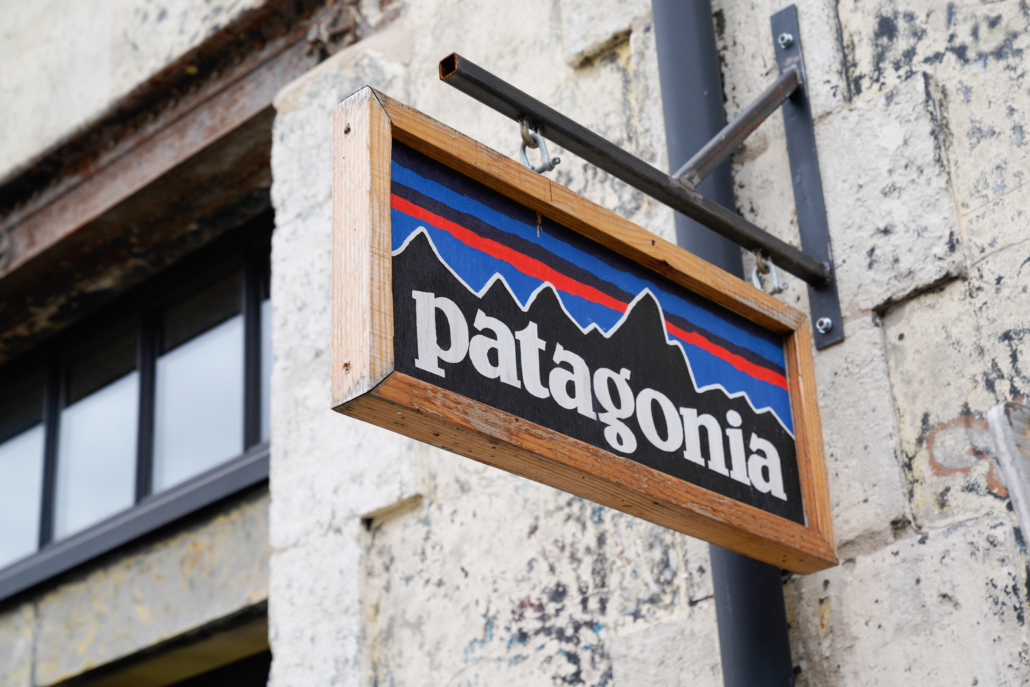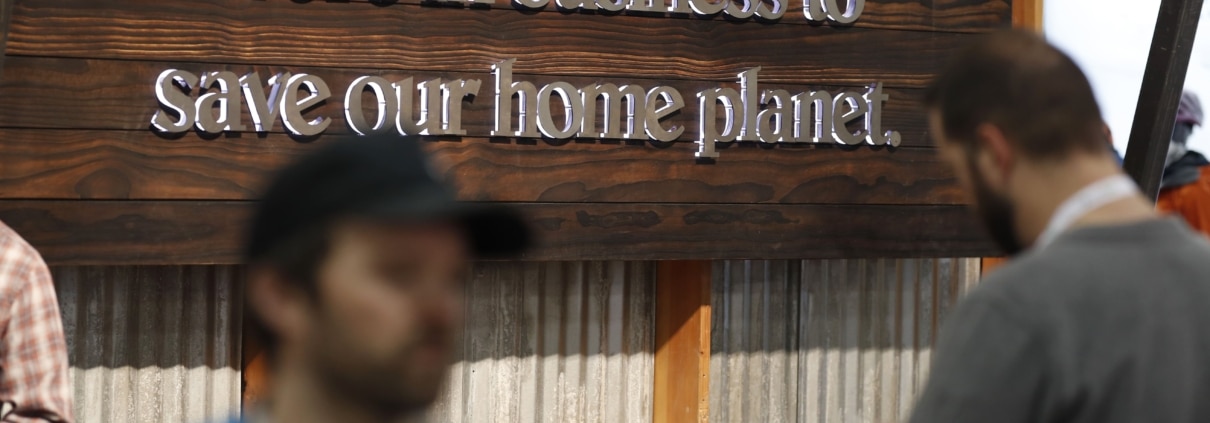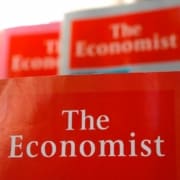Don’t Underestimate the Experience of Doing the Right Thing

Patagonia has long been considered one of the world’s most-admired companies. Apart from their millions of dollars in annual contributions to environmental causes and land conservation, the outdoor apparel company is known for their generous benefits and employee-centric workplace. But there’s an even more important reason to respect them: In the nearly 50 years since they were founded, when confronted with inconvenient facts about the harm of some of their products, they have consistently chosen to do the right thing, despite considerable short-term losses to their bottom line.
Just recently, they announced that they would stop putting additional logos on their clothing because “people tend not to pass logo’d gear down to their kids, and not everyone wants to be an advertisement on weekends, even if they’re proud to go into work on weekdays.” The result? Perfectly good gear ends up forgotten in the closet—or worse, gets tossed in the trash.” The result is that this reduces the lifespan of a garment, often by years. In their announcement, they say, “In 2018 alone, 11.3 million tons of textiles ended up in landfills, and we’re not okay being a part of that. Knowing how deeply you care about your colleagues, family and fellow humans, we don’t think you are either.” They acknowledge that this will likely cost them business. But Patagonia has a history of making hard tradeoffs for the longer-term good of the purpose they so deliberately and unashamedly serve.
“[The] saying that culture eats strategy for breakfast is absolutely true.”
The company was started in 1973 by Yvon Chouinard. An avid mountain climber and self-taught blacksmith, he began making his own climbing pitons, the metal spikes climbers hammer into rockface when climbing. Eventually, other climbers wanted him to make theirs too, and the company that would become Patagonia was born. Eventually, however, Chouinard and his partner realized that their pitons were destroying climbing surfaces due to the repeated need to hammer them into rockface and then remove them. They found a viable alternative: aluminum chocks that could be wedged in by hand rather than hammered in and out of crevices. The switch from pitons to chocks—intentionally sunsetting a successful business for an untested one—was Chouinard’s first step in creating a company committed to doing what was right even when it was hard.
Chouinard and Patagonia would be tested again two decades later, but this time the stakes were much higher. Excitement surrounding the opening of their Boston store in 1991 quickly turned to alarm after employees began getting sick with unexplainable headaches. An investigation discovered that workers were being poisoned by the formaldehyde on Patagonia’s cotton clothes, added by the mill that supplied them to prevent shrinkage and wrinkling.
If that’s what was happening to retail workers thousands of miles and dozens of steps removed from the cotton harvest, they could only imagine what things were like where the cotton was being grown. So they went to the fields themselves, taking key stakeholders along with them. They soon learned that conventional cotton growing, “despite only representing 2.5 percent of cultivated land, ingest[ed] 15 percent of chemical insecticides used in agriculture and 10 percent of pesticides,” according to Chouinard’s 2012 book, The Responsible Company: What We’ve Learned from Patagonia’s First 40 Years.
In the fall of 1994, Patagonia committed to switching over its entire line of cotton clothing to organic cotton within 18 months. They and their partners had to innovate across the entire supply chain of cotton production, but by 1996, they did it: Every piece of Patagonia’s cotton clothing was made from organic cotton.
Vincent Stanley is Patagonia’s Director of Patagonia Philosophy. He has been with the company since the beginning, having served in numerous executive roles, coauthored The Responsible Company along with Chouinard. As part of the research for my upcoming book To Be Honest: Lead with the Power of Truth, Justice and Purpose, arriving May 25, I spoke with Stanley about Patagonia’s story and the lessons other companies can take from its ups and downs.
Subscribe to the Ethical Systems newsletter
Throughout our conversation Stanley was quite modest, often admitting that he didn’t have an answer, or that he wasn’t sure Patagonia handled a situation it encountered in the best possible way. I took this humility as a reflection of the company’s culture and its practice of setting an example through actions, not words. His four decades of committed work can serve as a north star for any leader looking to better align their team’s actions and words.
Seeing is believing. Stanley began our discussion by pointing out how important it was, during the cotton saga, for Patagonia’s employees to see for themselves the destruction wrought by conventional cotton harvesting. “There’s a lot of research now that suggests that nobody changes their mind about anything,” he says. “If you give me facts that counteract my values, I just double down on my values and discount your facts. But experience changes people, I think. And by experience I mean something that enlarges your sense of the world and allows you to change your mind in some way, or expand it. So that was really critical for us.” The lesson here is that just telling an employee “X is bad” may not be enough to spur change. Better results may come from showing them, respectfully and without judgment, the consequences of a decision, whether made by them or the company.
Necessity is the mother of innovation. When Patagonia pivoted to exclusively sourcing organic cotton, it was a huge leap logistically and psychologically. “If you are a conventional apparel company, you can go to FIT fabric library and choose from thousands of fabrics. And if you’re from Patagonia you can choose from maybe a couple hundred,” says Stanley. The obvious downside is, well, limited selection. But, says Stanley, such limitations can be a blessing in disguise. When they were faced with this scenario, Patagonia developed the mindset, “You have to know those fabrics well, and you have to go through the process of really figuring out how to use them, how to make the best use of it,” he says.
Far from hurting the company, these constraints motivated them to double down on their resourcefulness. Instead of licking their wounds, they played the hand they were dealt. “So what’s happened with the business model of the company, I think, particularly in the last 10 years, that innovation is driven by constraints. Innovation has created the new business for the company,” says Stanley.
Purpose follows culture. Lots of companies struggle to come up with their purpose, treating it more as an academic exercise or, worse, little more than a part of their PR strategy. In Stanley’s view, this process needn’t be overly complicated. If you use your culture as a guide, you should be able to figure out what makes you unique, and what you have to offer the world. There’s your purpose.
“[The] saying that culture eats strategy for breakfast is absolutely true. And so I think what you need to find, you need to discern what the strength of the culture is, and how it’s individual,” says Stanley. “I’ve never walked into an office and not noticed that it had its own individuality—something that made it what it was. And I really think people don’t look at that. I think people, especially when they’re doing strategy and they say, ‘Oh, well, I want to be like my competitor who’s 20 percent bigger than I am. And then I’ll have more market share.’ And in fact if you want to unleash . . . the power of your organization, you have to figure out what those critical strengths are, what your voice is, and then figure out what you stand for on the basis of the experience.”
A high-quality product is a starting point for success, but it’s not necessarily enough. Power doesn’t lie in clever gimmicks, aping the competition, or trying to be too many things to too many people. As Patagonia makes clear, nothing compares to the awesome power of doing the right thing as the foundation of lasting success.
Ron Carucci is an Advisory Board member of Ethical Systems as well as cofounder and managing partner at Navalent, working with CEOs and executives pursuing transformational change for their organizations, leaders, and industries. He is the bestselling author of eight books, and his work has been featured in Fortune, CEO Magazine, Harvard Business Review, BusinessInsider, MSNBC, BusinessWeek, and Smart Business.
Reprinted with permission from Forbes.







